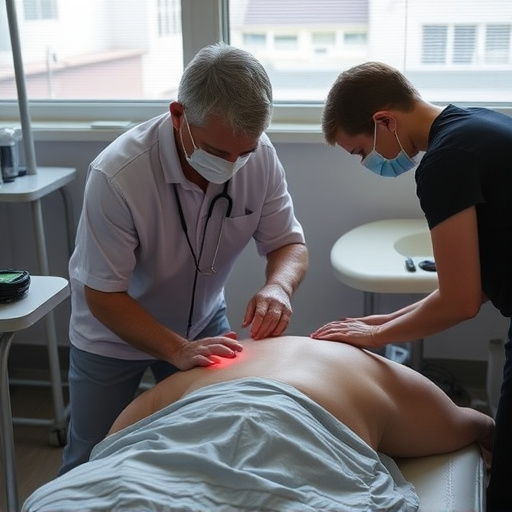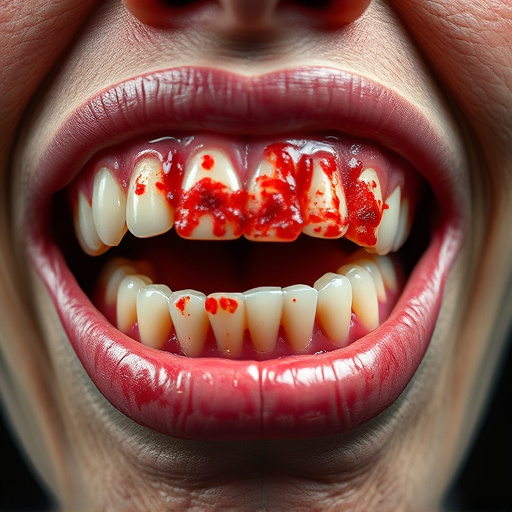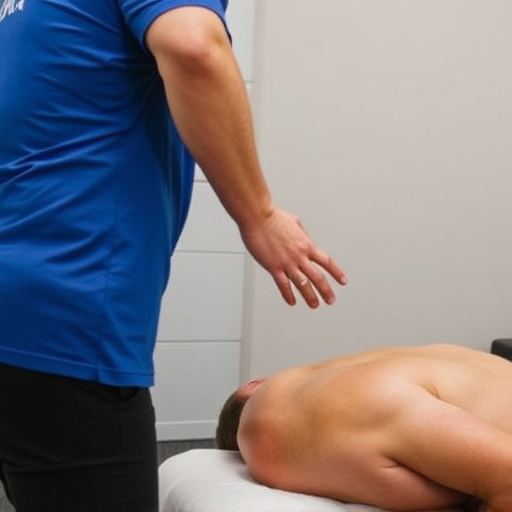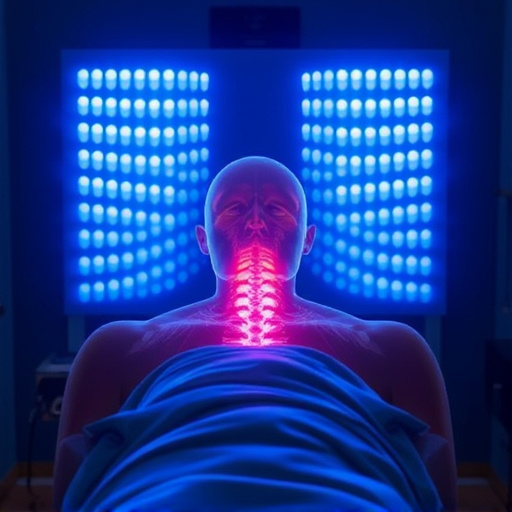Repetitive Strain Injury (RSI) is caused by repetitive tasks damaging muscles, tendons, and nerves. Traditional RICE methods offer temporary relief while advanced treatments like shockwave therapy focus on tissue repair. Mental health significantly impacts RSI recovery, with stress and anxiety exacerbating physical symptoms. Holistic treatment plans integrating physical therapy, psychological support, cognitive-behavioral therapy, mindfulness, and light exercises are crucial for effective RSI management and improved overall well-being.
“Repetitive strain injury (RSI) isn’t just a physical condition; it’s often closely tied to mental health challenges. This complex interplay between mind and body demands our attention. In this article, we’ll explore the intricacies of RSI, delving into its causes, the significant impact of mental health on recovery, and empowering strategies for sufferers to navigate their journey. Understanding these aspects is crucial in managing RSI effectively and improving overall well-being.”
- Understanding Repetitive Strain Injury (RSI) Causes
- Impact of Mental Health on RSI Recovery
- Effective Coping Strategies for RSI Sufferers
Understanding Repetitive Strain Injury (RSI) Causes

Repetitive Strain Injury (RSI) arises from repetitive tasks that place constant strain on muscles, tendons, and nerves. This can stem from work-related activities like prolonged typing or data entry, frequent use of smartphones or computers, or even repetitive motions in sports and physical jobs. The continuous, often unnoticeable stress leads to inflammation and micro-tears in these tissues over time, resulting in symptoms such as pain, numbness, and weakness.
While traditional methods like rest, ice, compression, and elevation (RICE) can offer temporary back pain relief, the underlying damage may persist without significant intervention. Advanced treatments like shockwave therapy for pain have emerged as promising options for RSI management, targeting tissue repair and accelerating healing processes in sports injury recovery.
Impact of Mental Health on RSI Recovery

The mental health landscape plays a significant role in the recovery process for individuals dealing with Repetitive Strain Injury (RSI). Beyond the physical symptoms, RSI often carries an emotional burden that can complicate healing. Stress and anxiety, common mental health challenges, may intensify the sensation of pain and discomfort associated with RSI, creating a vicious cycle that hinders progress.
Addressing these co-occurring mental health issues is crucial for effective RSI recovery. Personalized treatment plans that integrate both physical therapy and psychological support have shown promising results. For instance, techniques like cognitive-behavioral therapy can help individuals manage stress and anxiety, while mindfulness practices may reduce pain perception and improve overall well-being. Incorporating these holistic approaches alongside traditional herniated disc treatment or sports injury recovery methods can lead to more lasting and fulfilling outcomes for those struggling with RSI.
Effective Coping Strategies for RSI Sufferers

Managing repetitive strain injury (RSI) involves a combination of proactive coping strategies that address both physical and mental health aspects. For individuals grappling with RSI, prioritizing rest and modifying daily activities is crucial. This includes taking frequent breaks during task-oriented periods and adjusting work stations to promote ergonomic comfort. Physical therapy plays a significant role in RSI rehabilitation, focusing on exercises that strengthen supporting muscles and improve flexibility. Combining these practices with mindfulness meditation and deep breathing techniques can help reduce stress levels and alleviate symptoms of anxiety or depression, which often accompany RSI.
Complementing these strategies, cognitive-behavioral therapy (CBT) has proven effective in helping RSI sufferers reframe negative thoughts related to their condition. CBT encourages a more adaptive outlook towards pain management, fostering resilience against the physical and emotional challenges associated with repetitive strain injury. Additionally, engaging in light exercises like yoga or walking can facilitate endorphin release, contributing to improved mood and overall well-being—crucial components of successful RSI treatment and injury rehabilitation.
Mental health plays a significant role in the recovery process from repetitive strain injury (RSI). By understanding and addressing these challenges, sufferers can enhance their coping strategies. Effective management of RSI involves a holistic approach, combining physical rest, ergonomic adjustments, and mental wellness techniques such as mindfulness and stress reduction practices. With the right support and self-care routines, individuals can navigate their recovery journey with improved resilience and overall well-being.














